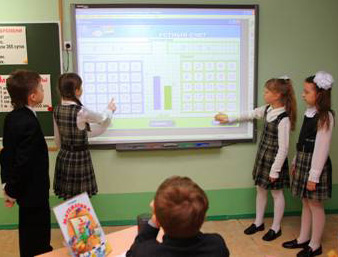
Language Learning in a Global Context
For something as ubiquitous and essential as language and the meaning which is embedded in human communication, it is ironic that the means for acquiring the tools for this communication and understanding the contexts in which it is used, are so poorly understood by a vast proportion of human society. Myths about language, language learning, culture and cultures abound. Myths in themselves may be interesting or even beneficial, but when they dis-empower people, they become harmful. And because language and culture are so deeply personal and thus entwined in our emotional makeup, a lack of sufficient empathy and the ability to connect with those of a different language or cultural background may lead to severe conflict. And of course, the modern era has forced us to interact globally like never before, making the immediacy and intensity of these linguistic and cultural interactions increasingly rapid and more widespread.
Social Studies Can be Social: Using Humor to Foster Engagement and Invigorate Learning in the Social Studies Classrooms
There is no shortage of public opinion, commentary, and conjecture lamenting the “sad state” of social studies education these days. One can simply turn on the television to see comedians such as Jay Leno making the most of on-the-street encounters with young (and not-so-young) adults who are apparently incapable of identifying photographs of famous world leaders like Russian Prime Minister Vladimir Putin, German Chancellor Angela Merkel, or U.S. Vice President Joseph Biden. Similarly, much to the great egocentric entertainment of the viewer, who, presumably, could correctly answer all such questions, these seemingly inept passersby commonly misidentify recognizable world landmarks such as London’s Big Ben, the Taj Mahal in Agra, and St. Basil’s Cathedral in Moscow. As interviewees hazard reckless guesses, the audience laughs wildly, and a great time is had by all… all except the interviewees’ dear old social studies teachers, that is, who hang their heads in bewildered disappointment.
Ten tips for navigating the wiki maze
Wikis have become popular tools for educators in this Web 2.0 era (O'Reilly, 2005), where students are not only readers of Internet content but also producers (Driscoll, 2007). The word “wiki” comes from the Hawaiian term “wiki-wiki” which can be translated as “to hurry.” Ward Cunningham is credited with developing the first wiki software application, naming it such because the tool could be used to quickly create collaborative websites. Teachers now use wikis to build do-it-yourself (DIY) websites. Using a wiki allows them to quickly create an entire website without knowing an Internet coding script, such as HTML. Another popular use for wikis is to have students collaborate on building content as part of a class project (Hazari & North, 2009). This use will be the focus of this paper.
Teaching Ethics to children
There are few activities in life more fun than having a serious conversation about ethical issues with a group of eight year olds. I did just that as part of my regular full time job for 24 years, as ethics teacher at the Fieldston Lower part of Ethical Culture Fieldston School, in New York City. Children are intently engaged in the work of making moral sense of their lives. They are hungry for guidance and quick with indignation. All they really ask is to be taken seriously. Taking them seriously of course includes sharing laughs often. It also includes trying to avoid boredom. Otherwise, teaching ethics to children is both wonderful fun and strenuous intellectual challenge. I am convinced that anyone who would want to do it can do it well.




